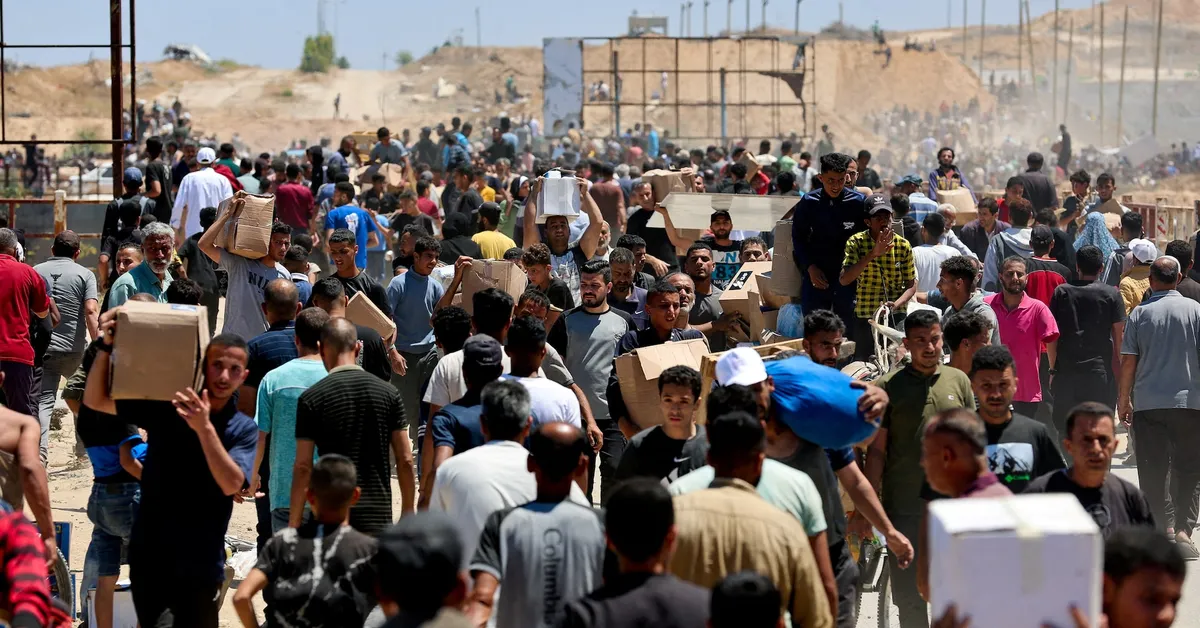
On July 26, 2023, Israel announced the resumption of aid airdrops to Gaza, a significant step in response to the escalating humanitarian crisis affecting the Palestinian enclave. The move comes amid increasing international pressure and urgent warnings from relief organizations about the dire situation, including reports of widespread starvation among Gaza's 2.2 million residents.
The Israeli military revealed plans to create humanitarian corridors designed to facilitate the safe movement of United Nations (UN) convoys delivering essential aid to the people of Gaza. Moreover, Israel stated that it would implement humanitarian pauses in densely populated areas to allow for the delivery of much-needed supplies. This announcement follows the breakdown of indirect ceasefire negotiations in Doha between Israel and the Palestinian militant group Hamas, leaving no resolution in sight.
According to the Israeli military, the airdrops will be coordinated with international aid organizations and are set to include seven pallets of vital supplies, such as flour, sugar, and canned food. Palestinian sources have confirmed that aid deliveries have commenced in northern Gaza, marking a crucial step in alleviating the humanitarian crisis.
Israel's foreign ministry stated that a humanitarian pause would be implemented in civilian centers and designated humanitarian corridors starting Sunday morning. However, specific details regarding these efforts were not disclosed. International aid organizations have reported that mass hunger has taken hold among the population, with food stocks depleting rapidly after Israel initially cut off supplies in March 2023. Though supplies were partially reopened in May, new restrictions have continued to complicate the situation.
In response to the crisis, Israel asserts that it has allowed sufficient food into Gaza and accuses the UN of inefficiencies in distribution. The UN countered that it is operating as effectively as possible under the existing Israeli restrictions. The Israeli Defense Forces (IDF) emphasized that there is currently no starvation in Gaza, labeling claims to the contrary as a false campaign propagated by Hamas. They reiterated that the responsibility for food distribution lies with the UN and international aid organizations, urging them to enhance the effectiveness of aid delivery and ensure that supplies do not reach Hamas.
In a related development, the Israeli military confirmed that it intercepted an aid ship attempting to reach Gaza. International activists aboard the vessel reported the interception via social media platform X, stating that their ship had been stopped by Israeli naval forces to prevent illegal entry into Gaza's maritime zone. The Israeli foreign ministry assured that the passengers were safe and that the ship was being redirected to Israeli shores.
The UN has indicated that humanitarian pauses in Gaza could enable a scaling up of relief efforts. However, they also noted that Israel has not provided sufficient alternative routes for aid convoys, which has significantly hampered access to those in need. Tragically, reports from the Gaza Health Ministry indicate that dozens of individuals have succumbed to malnutrition in recent weeks, with a total of 127 deaths attributed to malnutrition since the onset of the conflict nearly two years ago.
In a separate announcement, the Israeli military revealed that it has connected a power line to a desalination plant, which is expected to meet the daily water needs of approximately 900,000 Gazans. This development comes in the context of ongoing hostilities, which began after a Hamas attack on Israeli towns on October 7, 2023, resulting in the deaths of around 1,200 people and the capture of 251 hostages. In the ensuing conflict, Israeli forces have reportedly killed nearly 60,000 individuals in Gaza, leading to widespread destruction across the enclave.